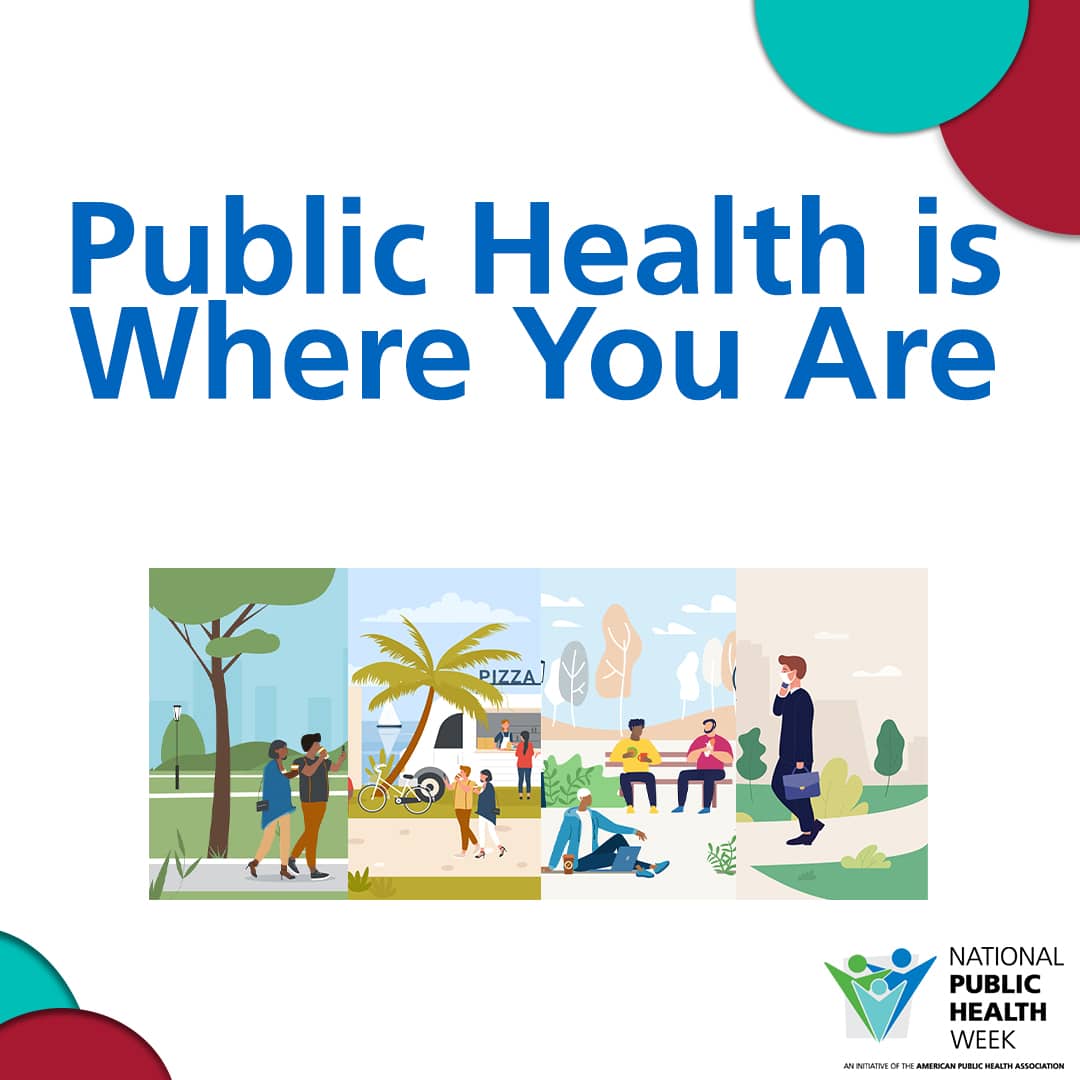When you enjoy a cold drink of water from your faucet, put on your seat belt, breathe air free of cigarette smoke, learn where COVID-19 surges are occurring or do any number of other daily tasks, you are benefitting from the expertise and contributions of public health. That makes the theme for National Public Health Week (NPHW), April 4-10, particularly appropriate: “Public Health is Where You Are.”

The American Public Health Association (APHA) organized the week more than 25 years ago to “recognize the contributions of public health and highlight issues that are important to improving our nation’s health.” Public health broadly encompasses policies, programs and activities that protect health, prevent illness and injury and address inequities that harm individuals and populations.
“To ensure everyone has a chance at a long and healthy life, we must also tackle the underlying causes of poor health and disease risk,” the APHA states on the NPHW website. “Those causes are rooted in how and where we live, learn, work and play. It’s the child who goes to school hungry and can’t take full advantage of the education that leads to a healthier, more productive adulthood. It’s the low-wage worker who must choose between losing much-needed income and staying home with a sick child. It’s the family that struggles to find nutritious, affordable food anywhere in their community…These are the types of conditions that shape the health and well-being of our people and communities.”
Each day of NPHW focuses on a public health topic. This year’s themes:
- Monday, April 4 – racism: a public health crisis
- Tuesday, April 5 – public health workforce: essential to our future
- Wednesday, April 6 – community: collaboration and resilience
- Thursday, April 7 – World Health Day: health is a human right
- Friday, April 8 – accessibility: closing the gap
- Saturday, April 9 – climate change: taking action for equity
- Sunday, April 10 – mental wellness: redefining the meaning of health
Des Moines University trains students to become public health experts and leaders in its master’s degree program in public health (M.P.H.). Accredited by the Council on Education for Public Health (CEPH), the program offers close interactions with faculty who are public health practitioners and researchers and hands-on field experience. Students gain specialized expertise and preparation for competitive positions in the program’s three concentrations – public health practice, public health administration and policy, and health education and promotion. The DMU M.P.H. program is 100 percent online, so students can complete it on their schedule and also apply what they learn immediately.
Justin Wurtzel, a student in the program, is the viral hepatitis surveillance coordinator at the Iowa Department of Public Health. In his role, he oversees reported hepatitis B data and conducts provider and patient investigations to understand exposure to the disease.
“Our team uses the data from our surveillance system to identify which populations have the greatest burden of viral hepatitis,” he says. “We then work to develop strategies to reach these populations and support the providers in helping their patients, linkage to care and requesting the right lab tests.”
Being able to perform such investigations using statistics in epidemiology, Justin says, drew him to public health.
“I chose public health because it marries my passion for the sciences and mathematics with helping people,” he adds.
M.P.H. student Rebecca Mulder earned her bachelor’s degree in nutritional science but enrolled in the master’s program given her interest in maternal and pediatric health as well as infectious diseases. “I love that I’m able to have one-on-one conversations with my adviser whenever I feel the need,” she says. “The professors are very approachable and respond to emails in a timely manner.”
As a nutrition educator and certified lactation specialist in the Women, Infant and Child Program of the Shelby County, IA, Public Health Department, in 2020 Rebecca pivoted to work as a contact tracer for COVID-19. She now is a disease prevention specialist at the Black Hawk County Health Department in Waterloo, IA.
“Many things we discuss and do at work has come in my course work at DMU,” she says.

